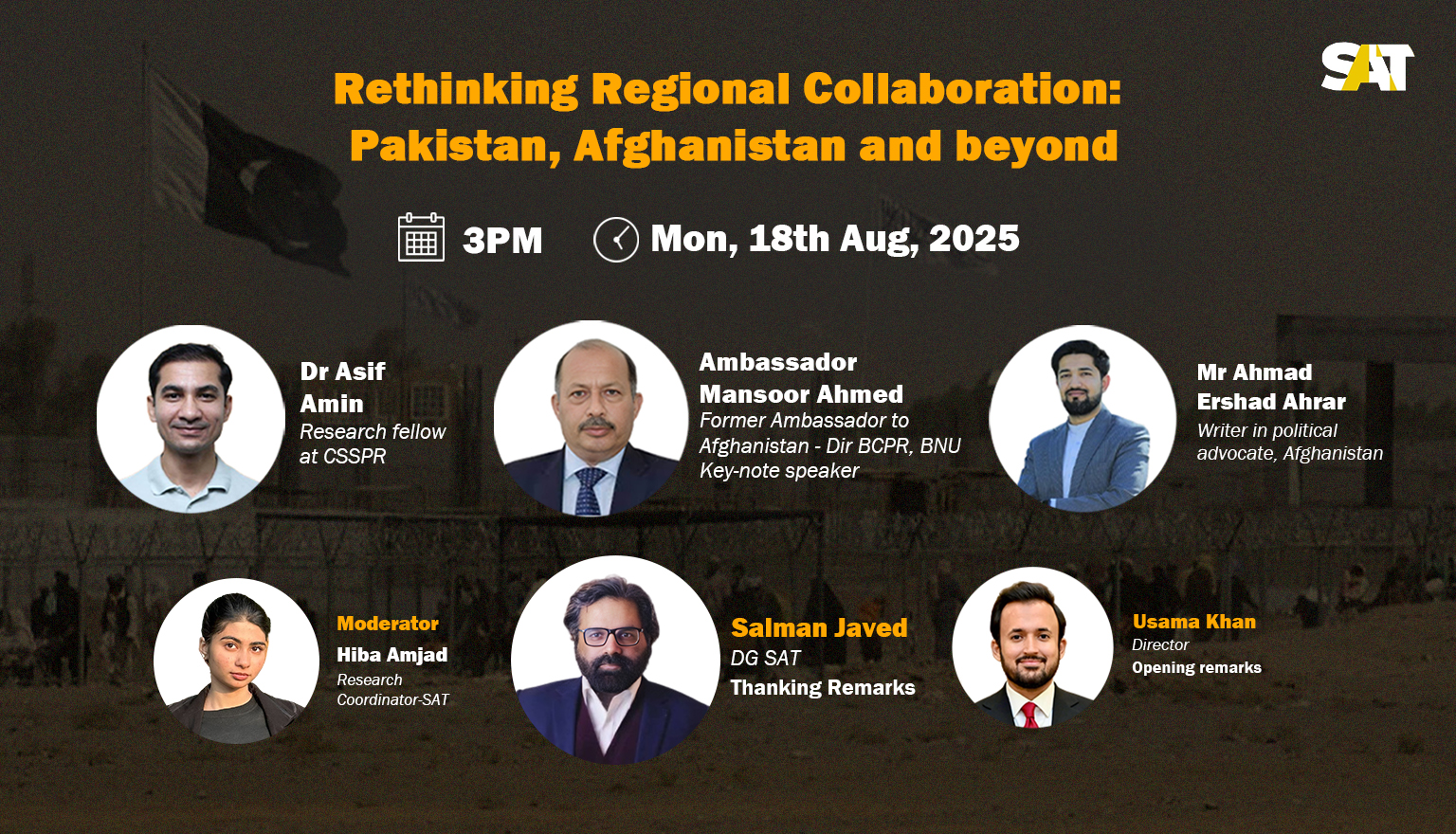
August 2025
On August 18, 2025, South Asia Times (SAT) hosted a webinar titled “Rethinking Regional Cooperation: Pakistan, Afghanistan, and Beyond.” The event brought together leading scholars and practitioners to examine the evolving dynamics of Pak–Afghan relations in light of refugee repatriation, terrorism, and regional geo-economics.
Welcoming remarks by Mr. Usama Khan, Director of SAT, underscored the deep historical ties between Pakistan and Afghanistan, emphasizing that their shared culture and geography must serve as a foundation for cooperation.
The discussion highlighted the dual challenge both countries face: on the one hand, acute security threats from terrorism; on the other, untapped opportunities in trade, minerals, and connectivity. Speakers stressed that socio-economic integration, people-to-people linkages, and trust-building are essential first steps toward long-term regional stability.
Moderated by Ms. Hiba Amjad, the dialogue spanned security, economy, and regional diplomacy.
Ambassador Mansoor Ahmad Khan traced the refugee dilemma back to 1979, stressing that “unless and until you take care of the security dimension, you cannot move forward in economic integration.” He proposed stronger documentation, expanded education and health linkages, and boosting trade potential up to $10 billion.
Dr. Asif Amin emphasized the paradox of poverty amid mineral wealth, noting that Afghanistan’s lithium reserves could shape the emerging technological world order. “What we need to do is make their vested interest in the region… through trade, transit, and integration,” he argued, pointing to China’s $10 billion commitments.
Mr. Ahmad Ershad Ahrar cautioned that many tensions are fueled by external powers, and urged both governments to adopt joint policies for refugee repatriation and reconciliation. “Only through mutual understanding and cooperation can the two neighbors move toward sustainable peace and stability.”
Closing remarks by Mr. Salman Javed, Director General of SAT, reaffirmed the “brotherly ties” between both nations and warned against external elements seeking to destabilize Pakistan.